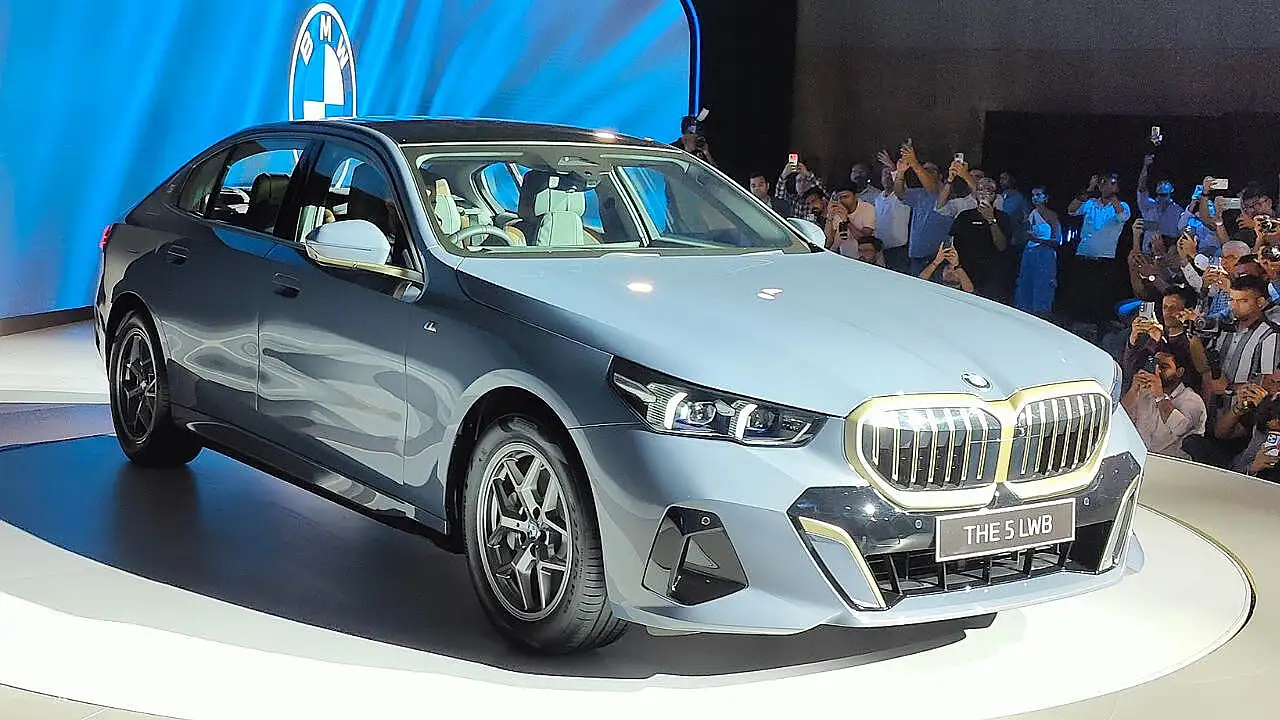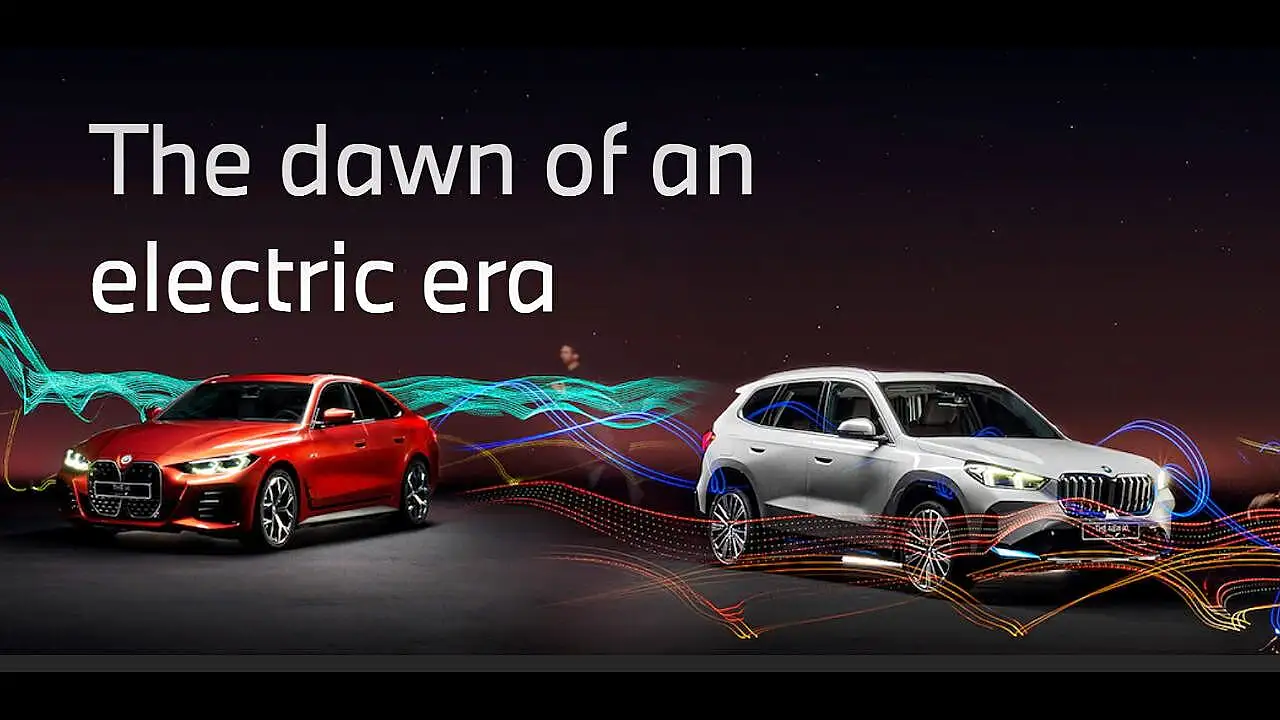
At the recent launch of the all-new BMW 5 Series Long Wheelbase, Jean-Philippe Parain, Senior Vice President of BMW Group for the Asia-Pacific, Eastern Europe, Middle East & Africa regions, outlined the global company's strategic approach to Electric Vehicles (EVs). He highlighted that BMW Group is committed to an 'open approach to technology,' reflecting their flexible and forward-thinking stance in the rapidly evolving automotive industry.
Discussing the region he oversees, Parain noted that BMW Group expects robust growth in Battery Electric Vehicle (BEV) sales, outpacing overall sales. While the share of electric vehicles in the region has grown from 8% to approximately 14%, it still has the lowest BEV adoption rate. 'However, we are catching up, and I believe that a market like India, supported by customer data, shows significant potential for these vehicles,' he added.
India Market
Expressing his satisfaction that BMW Group India became the first car manufacturer in the country to exceed 2,000 EV deliveries, he highlighted that these cars have collectively traveled over 6.4 million kilometers, underscoring their extensive use. Interestingly, these vehicles have been charged more than 68,000 times, with 55,000 of those instances using AC chargers and the rest utilizing fast DC chargers. This data also suggested that AC charging is particularly well-suited to the needs of Indian consumers, with an average charge time of 5.5 hours for AC chargers and 1.78 hours for DC chargers. Most users tend to charge their vehicles either in the morning after arriving at work or in the evening, averaging four to five charges per month, or roughly once a week. This pattern suggests that concerns about range anxiety in India are largely unfounded, as pointed out by the company.
Although BMW India has already introduced several BEV models, it is working to bring its full range of products to the country. 'This is a movement that will continue forward. We aim to meet the growing demand and support it through our investments in charging infrastructure. However, the BMW Group maintains an open approach to technology. We are not solely focused on one technology but are also investing in combustion engines, plug-in hybrid vehicles, and even considering hydrogen. Our goal is to remain as flexible as possible to follow market demand,' he explained.

Configurable Design
Parian highlighted the flexibility of the BMW 5 Series long-wheelbase version as an example. According to him, this model is available in Europe in a short-wheelbase version with petrol, diesel, plug-in hybrid, and electric options. In India, customers can purchase the same model with a petrol engine, available in both long and short-wheelbase platforms. 'We strive to offer as many options as possible, allowing customers to choose what best suits their needs,' he said.
Winning Strategy In The International EV Market
BMW has reported a 34% growth in the global market, a notable achievement especially as competitors like Porsche, Mercedes, and Audi face challenges in their transformation to electric vehicles. Porsche's electric vehicle sales have reportedly declined by 50%, and both Mercedes and Audi are struggling.
Parian attributed BMW’s success to better products and a comprehensive, 360-degree strategy involving dealer partnerships, infrastructure investments, and extensive training. A key factor in BMW's growth has been the concerted effort to ensure that dealer partners are well-prepared, service facilities are well-equipped, and investments in destination charging are robust. This holistic approach has been crucial, as the adoption of electric vehicles (EVs) is “akin to a marathon, not a sprint,” he noted.
Competitive Edge
In the BEV space, BMW has made strong strides, surpassing even formidable competitors like BYD on a global scale. While BMW has achieved a growth rate of 34%, BYD stands at 31%, showcasing the German carmaker’s ability to gain market share in a highly competitive environment.
Parain said that the company recognizes all forms of competition. “During the Beijing Motor Show, I had the opportunity to experience many vehicles alongside my colleagues. The advancements in the industry are indeed impressive. However, we believe that BMW's heritage, brand perception, and product features make us the better choice compared to many lesser-known brands. Our long-standing brand value and continuous development efforts, especially in connectivity, set us apart. China is a key development hub for connectivity features, and our future cars will reflect significant advancements in user interface and connectivity,” he mentioned.
According to Parian, it is important to note that while Chinese competitors are making inroads, particularly in markets like Thailand, BMW continues to gain market share. Despite the overall market decline, “we have managed to limit our decrease to -9%, compared to the market's -18%. This indicates that while Chinese brands are primarily targeting non-premium segments, BMW remains resilient and competitive. We take all competitors seriously as they aim to upscale and enhance their brands. This is why we remain vigilant and proactive in our product strategy, sales efforts, and development initiatives. By staying on our toes, we ensure that BMW continues to lead and innovate in the automotive industry,” Parian said.

Advantage Australia
However, the pace of EV adoption is closely tied to the State policies. For example, in some markets, subsidies have been reduced due to budget constraints, while in others, such as Australia, subsidies have increased. This has led to a significant rise in EV adoption, with Australia's EV market expected to grow from 3% in 2023 to approximately 25-27% in 2024, despite being one of the last markets to embrace EVs.
Budget Constraints
Globally, budget constraints have slowed EV adoption more than initially anticipated. BMW's flexible strategy allows it to adapt quickly, switching production between models like the X1 and the iX1 as needed. This flexibility is crucial for managing the uncertain pace of EV adoption.
Looking ahead, he said, the carmaker remains committed to its investment in electric vehicles. The forthcoming Neue Klasse family, a new generation of electric vehicles with cutting-edge architecture, is a testament to this commitment, he pointed out. BMW is confident that its significant investments and products will continue to attract customers who are eager for innovative and sustainable mobility solutions.
Supporting Elements
Parain said, “I believe it's crucial to offer incentives for EVs today, as they represent a significant transformation. This change impacts customer habits, vehicle usage, and requires a mindset shift for vehicle owners. In my opinion, the strongest incentives from the States should be directed towards EVs, as the initial effort and investment required are substantial.”
Plug-in Hybrids
According to him, the plug-in hybrids serve as a transitional technology towards full electrification. They can be particularly useful for customers who need to travel longer distances and are concerned about range anxiety. The automaker is offering this technology in many countries, where it often has favorable tax benefits. However, when it comes to India, “I would advocate for a stronger focus on the complete transition to fully electric vehicles. Concentrating on one technology could yield more significant results than spreading efforts across multiple technologies. I believe a dedicated approach to EVs can drive greater advancements,” he concluded.
Also Read: